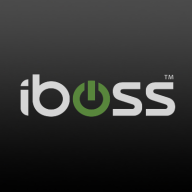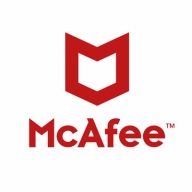


Fortinet FortiGate and McAfee Web Gateway Cloud Service compete in the cybersecurity solutions market. Fortinet FortiGate has the upper hand in cost-effectiveness and ease of deployment, while McAfee Web Gateway Cloud Service leads in advanced features and cloud capabilities.
Features: Fortinet FortiGate is designed with integrated security services for SMEs, offering effective network protection. It also provides robust support and cost-effectiveness. McAfee Web Gateway Cloud Service delivers advanced threat protection, flexible cloud-based solutions, and better cloud integration for enterprises seeking superior protection.
Ease of Deployment and Customer Service: Fortinet FortiGate allows for straightforward deployment, supported by solid customer service, which makes it ideal for businesses seeking quick implementation. McAfee Web Gateway Cloud Service offers comprehensive customer service assistance, albeit requiring more configuration but benefiting complex environments significantly.
Pricing and ROI: Fortinet FortiGate is more budget-friendly due to lower setup costs and quicker ROI, appealing to price-sensitive buyers. McAfee Web Gateway Cloud Service, although having potentially higher initial expenses, delivers strong long-term ROI through its superior cybersecurity features, targeting security-focused enterprises.
| Product | Market Share (%) |
|---|---|
| Fortinet FortiGate | 6.2% |
| iboss | 2.2% |
| McAfee Web Gateway Cloud Service | 0.7% |
| Other | 90.9% |


| Company Size | Count |
|---|---|
| Small Business | 6 |
| Midsize Enterprise | 6 |
| Large Enterprise | 5 |
| Company Size | Count |
|---|---|
| Small Business | 350 |
| Midsize Enterprise | 130 |
| Large Enterprise | 187 |
Iboss offers a comprehensive cloud-based security platform valued for its scalability and autonomous features, ensuring robust security with easy deployment and management capabilities.
Renowned for its robust security architecture, Iboss integrates seamlessly within diverse networks, delivering efficient granular filtering and advanced content categorization. Its single pane of glass console provides ease of management, allowing rapid scalability suitable for rapidly deploying environments. Operates in BYOD setups due to inline filtering without device installation. Integration with cloud-based applications enhances user control, and features like SASE, SSL inspection, and ChatGPT risk protection stand as highlights. Despite its strengths, users have pointed out areas for enhancement like direct navigation in reports, SSL decryption, and better cloud integration while having room to improve data loss prevention.
What are the most important features of Iboss?The usage of Iboss spans educational institutions, specifically K-12, to enforce internet policies, protect data, and support remote work environments. It provides web filtering and security frameworks to ensure safe browsing. Its platform-as-a-service model offers flexibility for both cloud-based and on-premises requirements, integrating seamlessly to deliver enhanced security features suitable for various deployment needs including zero trust, CASB, and network security for work-from-home setups.
Fortinet FortiGate excels in providing integrated VPN, firewalling, and Unified Threat Management (UTM) with centralized management and high availability. It supports remote access and comprehensive threat protection, making it a preferred choice for securing networks.
Fortinet FortiGate offers a robust security platform with features such as strong intrusion prevention, application control, and web filtering. Its integration with Active Directory and SD-WAN functionality provides scalable solutions for large networks. Users appreciate its ease of use through centralized management interfaces, ensuring robust security with flexible configurations. However, FortiGate could enhance its graphical interface and technical support responsiveness, address firmware bugs and costly licensing, improve logging, integrate better with third-party tools, and strengthen scalability and memory for log storage. Complexity in configuration and the need for intuitive features are noted challenges, and there's a demand for advanced security, zero-trust capabilities, and AI integration.
What are the key features of Fortinet FortiGate?Fortinet FortiGate is widely implemented across industries like education, finance, and government. Companies use it for firewall protection, VPN, and SD-WAN capabilities, ensuring secure perimeter and data center security. It facilitates remote access management and traffic routing optimization, offering reliable security and connectivity solutions.
Defending against sophisticated threats from the web takes advanced technology, but it doesn’t have to drive cost and complexity. Delivering web security from the cloud enables security teams to gain the same benefits of advanced threat protection as on-premises appliances but without the cost of hardware or the resources used to maintain it. As more web access occurs outside the network perimeter, the cloud becomes the consistent point of contact for devices and users as they roam. Instead of building security for traffic flowing into a single location, it is more effective to build security from the endpoint out. Unifying access control and threat protection for the Cloud and Web enables your workforce to operate with maximum productivity while creating an efficient and consistent security management experience.
We monitor all Secure Web Gateways (SWG) reviews to prevent fraudulent reviews and keep review quality high. We do not post reviews by company employees or direct competitors. We validate each review for authenticity via cross-reference with LinkedIn, and personal follow-up with the reviewer when necessary.